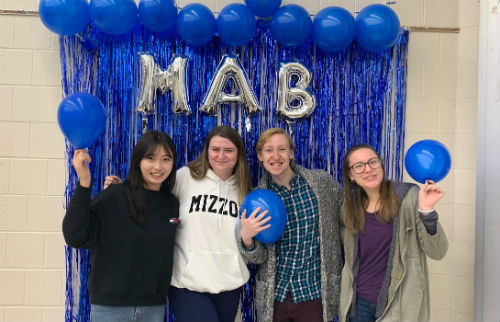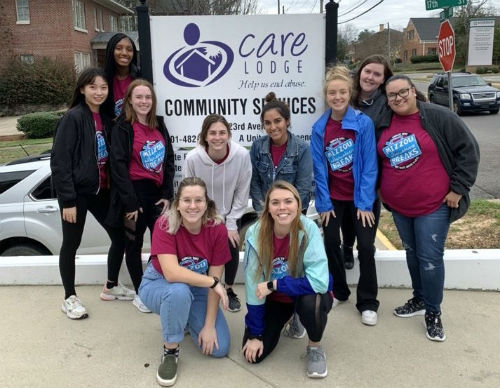
During the fall semester of 2019, which was my first semester at the University of Missouri-Columbia (MIZZOU), I had a hectic time adapting to local life and various school events. Relatively, the spring semester of 2020 was rather relaxing, and I felt a little bored with my life abroad. I was looking for something special and new and decided to work part-time on campus.
Working Part-time in the U.S.
I applied for a campus dining service job on the MIZZOU website and went to an interview a few days later. I was very nervous before going to the interview since the process of getting the job seemed complicated and I was worried about my English skill, but the interviewer was so kind to guide me through the process that I was able to start the work without any difficulty. There were a total of two interviews and three hours of training before officially starting work. The Rollins where I worked is a buffet-style restaurant. The work was not difficult at all. I filled dishes or drinks, distributed food or made pizza, and so on. I could make friends and improve my English by talking with my co-workers.
There were a few things that I thought were different from Korean part-time jobs. First, I had a thorough assortment of education before I started work. I was educated about school systems, hygiene, duties, rights, bullying in groups, etc. both online and face-to-face, and I also had a simple test to complete. I was surprised because there was no chance to receive such an education before starting a part-time job in Korea. The content seemed necessary, something that all workers should know and it was so informative that I thought Korea needed to learn about this training process. Second, of course, there was a relationship between the top and bottom in the organization, but it felt much freer than in Korea. Specifically, there was no outside-work stress in the relationship with the boss. Finally, there were some student managers that seemed to provide students with a chance of a more professional work experience.

Advantages of Being Exchange Students
Working part-time as an exchange student had its advantages. I was able to understand the wider American culture and have an experience that would be difficult for me to do in my lifetime. Exchange students can improve their English skills because they have to listen to and speak English. They also have more free time and spend more money than they expected, so they can make money during their time abroad through a part-time job and go on a trip more comfortably. I strongly recommend that students who go abroad have part-time jobs.
Additionally, I would like to recommend extracurricular activities like the Mizzou Alternative Breaks (MAB) which is my best memory in the U.S. It is a student-led program that sends students across the country and abroad to serve communities in need. I participated in MAB twice. The first time, I went to Little Rock with the ‘Youth Empowerment’ category for six days during Thanksgiving week, and second, I went to the ‘Care Lodge’ in Mississippi for about seven days during winter break. We did some fund-raising activities for the trip from a month beforehand and prepared for the trip. We took turns driving to the destination and went grocery shopping and made food every day. We volunteered at the facility every day and exchanged feedback in the evening. Not only did I feel that it was so rewarding to volunteer there, but I spent a few days with about nine American friends to learn the American culture of people my age, and to improve speaking in English, I had a very meaningful and awesome time.
By Jang Yu-jin, Senior, Department of Psychology

